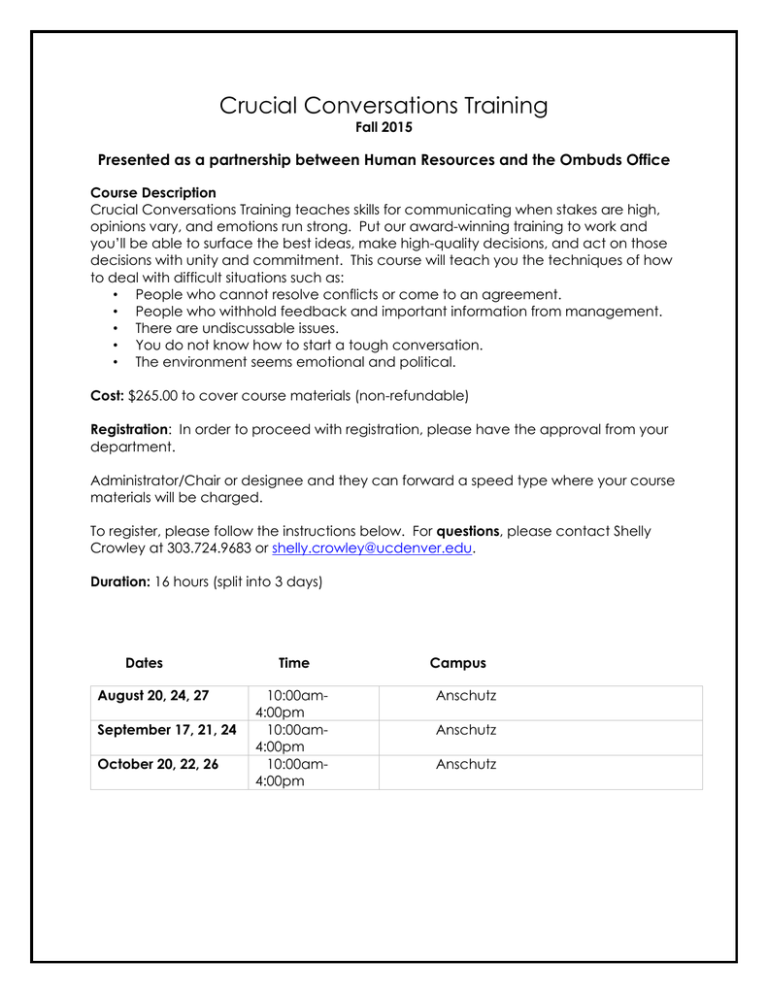

More recently, we have used a parent liaison to avoid the unintentional coercion that can stem from a parent's sense of obligation to a health care provider. Initially, the physicians and social workers reached out to prospective parent volunteers. In 2008, we introduced patients' parents into the workshop. Nurses, social workers, and chaplains were recruited annually as volunteers to encourage residents to consult experienced professionals for support and guidance.

The workshops occurred during intern and resident orientation in vacant patient rooms or conference rooms that were rearranged to resemble family consultation rooms.

In 2007, physician faculty at Dell Children's Medical Center, now affiliated with Dell Medical School at the University of Texas at Austin, developed half-day workshops for incoming interns and rising second-year residents to help them develop empathetic listening and other skills to assist in addressing difficult conversations encountered in pediatric practice. We created a simulation in which residents interact with an interprofessional team and the parents of children with life-threatening diagnoses to learn the skills needed to navigate difficult conversations. 5, 8, 10, 11įrom the patient perspective, good communication is based on the emotional aspects of an interaction with a physician, not just whether specific actions are adhered to, such as avoiding jargon.
CRUCIAL CONVERSATIONS TRAINING DALLAS HOW TO
5, 6 Programs that incorporate training typically use actors to portray patients and family members in role-playing exercises, 4, 7 – 9 to teach how to respond appropriately to emotions, to provide realistic hope, and to understand family expectations. 4Ĭurrent training models for conducting difficult conversations with patients and families may not be adequately building physician confidence and competence. 1 – 3 Physicians often feel anxiety over how to present difficult news to patients and families without eliminating hope or increasing distress. It positively influences patient and caregiver trust in recommendations for care, and it may improve patient outcomes. Proficient communication forms the basis of a supportive and trusting relationship among physicians, patients, and families. Emotionally charged medical conversations are challenging for physicians and family members.


 0 kommentar(er)
0 kommentar(er)
